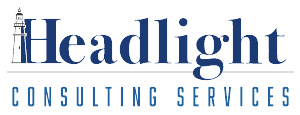By: Chelsie Kuhn, MEL Associate, Headlight Consulting Services, LLP
This is the first post in a series of two about Learning Reviews.
In order to chart the wisest path forward, we need to understand where we have been. Reflecting on past learning can ensure more effective and efficient efforts in the future, regardless of discipline or field. But different information needs require different tools. Literature, Desk, and Learning Reviews are three ways to integrate evidence into decision-making and design processes. Each tool uses varying degrees of information and rigor, and each is best suited for different applications, as described in the visual below.

A Literature Review traditionally focuses on academic journal articles and published books, giving readers a theoretical or case-based frame of reference. A Literature Review may be appropriate for researchers looking to set up an experiment or randomized control trial in a location or those looking at theoretical development over time. This kind of review is all about synthesis of what we know research-wise up to the current point, and what potential gaps exist yet to be filled.
Another type of review widely known is a Desk Review, which serves to provide readers with an introduction into a project’s context and priorities, but often not the past learnings or in-depth challenges needed to inform strategy development. A Desk Review can also serve as an entry point to understanding a particular market or an effective way to organize and summarize disparate types of information. Doing a Desk Review might be appropriate to bring a new team member up to speed on projects or learn about the current state and environment concerning a particular type of intervention.
While Literature and Desk Reviews may be more commonly known, one of the offerings that Headlight specializes in is a Learning Review. A Learning Review is a way to systematically look at past assessments, evaluations, reports, and any other learning documentation in order to inform recommendations and strategy, program, or activity design efforts. Unlike Desk Reviews, Learning Reviews focus on coding and analyzing data instead of summarizing it. With layers of triangulation and secondary analysis built into the process, we can confidently draw findings and conclusions knowing that the foundation of the process is built with rigor. Recommendations stemming from these findings and conclusions serve as the best use of an existing evidence base in designing or revisiting strategies, programs, and activities. Each of these three tools are useful at different points, but as we see more and more emphasis placed on learning and adaptive management, Learning Reviews offer a more rigorous and application focused use of available evidence.
As a synthesis of past evaluations and assessments, Learning Reviews should also be used to feed into new MEL or CLA plans. Having extra information on what has worked in the past, what information was useful, and where more-nuanced information would be beneficial enables us to set better targets and understand potential barriers to measurement. Recommendations may even point to specific indicators to consider or CLA actions to integrate into programming moving forward. Learning Reviews can also be used to appropriately scope and identify future evaluative efforts that will evolve the evidence base.
In the next post in the series, we will expand further on Learning Reviews as a process and walk readers step-by-step through how to conduct one. If you need help implementing any of these above tools, but in particular a Learning Review, Headlight would love to support you! We have the breadth and depth of expertise, experience, and toolbox to tailor-meet your needs. For more information about our services please email info@headlightconsultingservices.org. Headlight Consulting Services, LLP is a certified women-owned small business and therefore eligible for sole source procurements. We can be found on the Dynamic Small Business Search or on SAM.gov via our name or DUNS number (081332548).





Comments
no comments found.